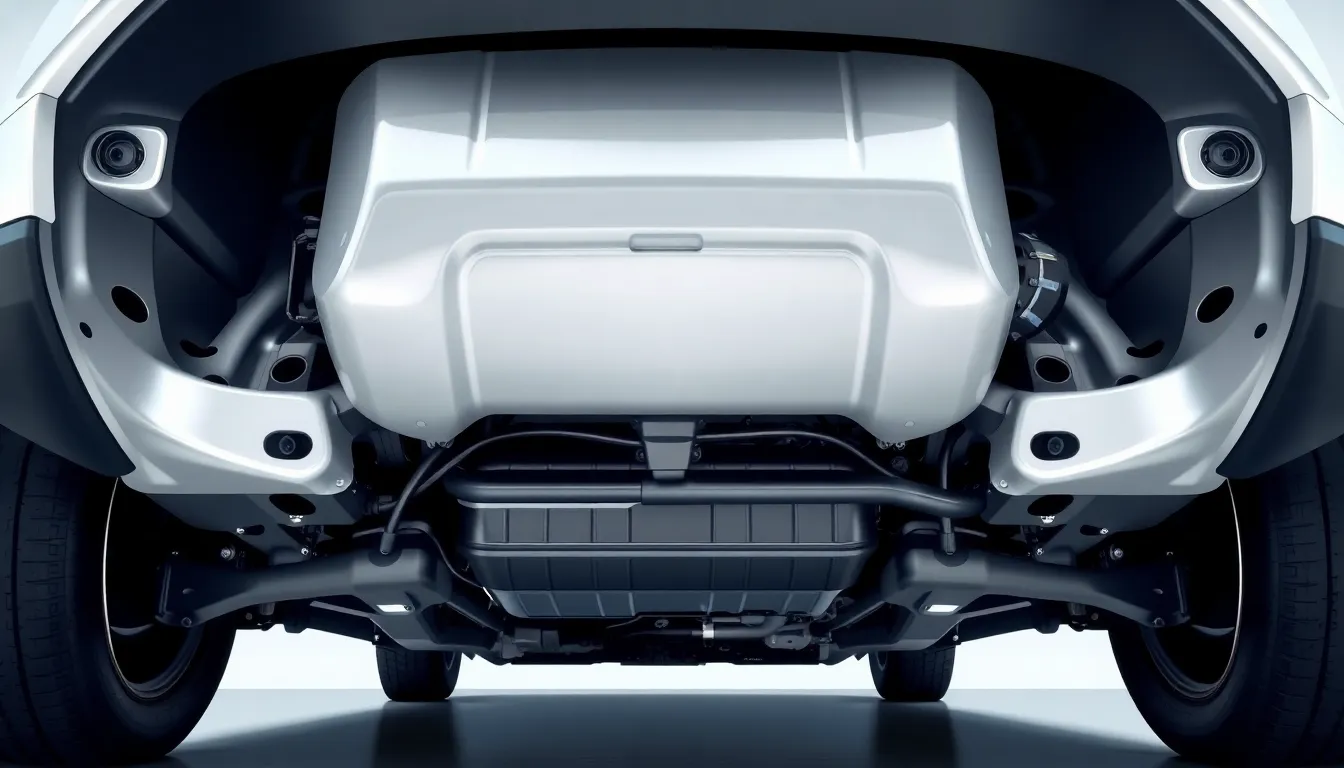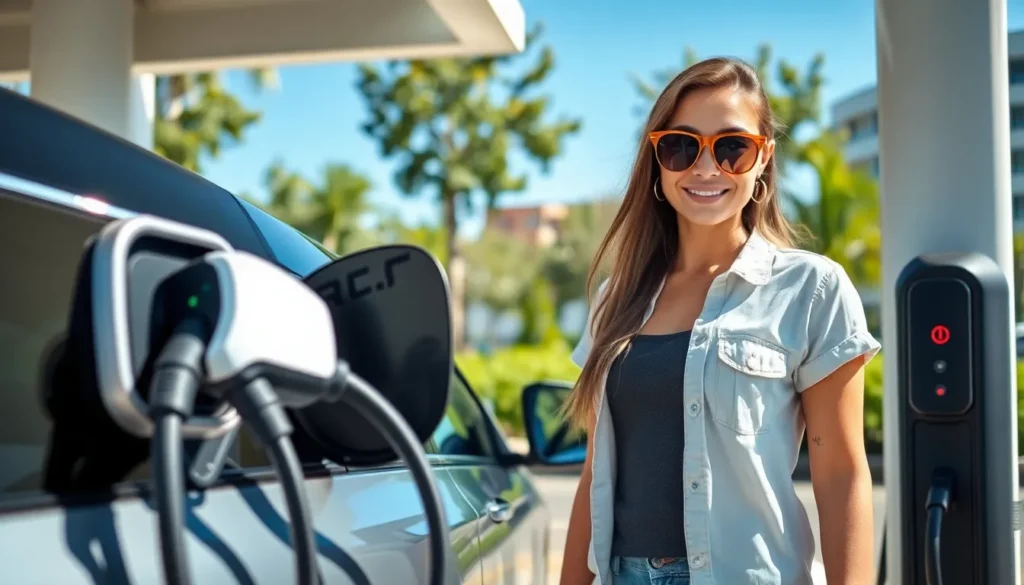As the world shifts gears towards electric vehicles (EVs), a common question pops up: do these silent, eco-friendly machines need oil changes? Picture this: you’re cruising in your shiny new EV, feeling like a futuristic superhero, and suddenly you wonder if you should be scheduling a visit to the mechanic for an oil change. Spoiler alert: you can skip that trip!
Table of Contents
ToggleUnderstanding Electric Vehicles
Electric vehicles (EVs) represent a significant shift in automotive technology. Unlike traditional vehicles, they rely on electricity as their primary power source.
What Are Electric Vehicles?
Electric vehicles are automobiles powered entirely by electricity. These vehicles utilize electric motors instead of internal combustion engines. Battery electric vehicles (BEVs) rely solely on electric energy stored in batteries. Plug-in hybrid electric vehicles (PHEVs) combine an electric motor with a gasoline engine. Both types of EVs emit no tailpipe pollutants, contributing to a cleaner environment.
How Do Electric Vehicles Work?
Electric vehicles operate using electric motors powered by rechargeable batteries. Energy stored in the battery converts into mechanical energy, enabling movement. Regenerative braking captures energy during braking, enhancing efficiency. Charging occurs at home or public charging stations, with most EVs requiring several hours for a full charge. Instant torque delivery from electric motors results in quick acceleration, providing a responsive driving experience.
Do Electric Vehicles Need Oil Changes?

Electric vehicles do not need oil changes. This maintenance task is essential for traditional vehicles but irrelevant for EVs.
The Role of Oil in Traditional Vehicles
Oil serves a critical function in traditional vehicles. It lubricates engine components, reducing friction and preventing wear. Maintaining oil levels ensures smooth engine operation and enhances performance. Over time, oil breaks down and accumulates contaminants, necessitating regular changes. Drivers often follow a schedule based on mileage or time to avoid engine damage.
Key Differences in Electric Vehicle Maintenance
Electric vehicle maintenance differs significantly from traditional vehicles. EVs lack an internal combustion engine, eliminating the need for engine oil. Instead, maintenance focuses on battery health, tire condition, and brake systems. Regular checks of coolant levels and software updates also play a role. Some EVs feature regenerative braking, which decreases brake wear. These factors contribute to lower overall maintenance costs for electric vehicles compared to their gasoline counterparts.
Benefits of Oil Change in Traditional Cars
Oil changes play a crucial role in maintaining traditional vehicles. Regular maintenance ensures optimal engine performance and longevity.
Lubrication and Engine Performance
Oil lubricates critical engine components such as pistons and bearings. This lubrication minimizes friction, allowing the engine to operate smoothly. Enhanced lubrication also improves fuel efficiency, contributing to better overall performance. Neglecting oil changes can lead to sludge buildup, causing strain on the engine and reduced power output. Maintaining a clean oil supply aids in preventing overheating and extends the life of the engine.
Cooling and Contaminant Removal
Oil serves as a cooling agent, assisting in regulating engine temperature. It absorbs heat generated during combustion and dissipates it through the oil pan. Additionally, oil helps trap contaminants and debris, preventing them from circulating through the engine. Regular oil changes remove these impurities, which could otherwise lead to engine wear. By ensuring a fresh supply of oil, drivers can maintain optimal engine conditions, ultimately supporting reliable vehicle operation.
Common Misconceptions About Oil Changes
Many believe that electric vehicles (EVs) require the same maintenance as traditional gasoline cars, particularly concerning oil changes. This misconception often stems from familiarity with conventional vehicles.
Misunderstanding Electric Vehicle Mechanics
Some individuals think EVs operate similarly to gasoline vehicles. Instead, electric motors rely on electricity, eliminating the need for engine oil. Battery systems play a pivotal role in powering these vehicles, and they do not benefit from oil for lubrication. Charging infrastructures facilitate quick recharging, allowing for effective daily use without oil-related tasks. Commonly, people unfamiliar with EV technology overlook these differences, leading to confusion about required maintenance.
Addressing Regular Maintenance Needs
Essential maintenance focuses on battery health and tire condition. Regular checks ensure optimal performance and safety. Brake systems also require attention, especially due to the regenerative braking feature. Electric vehicles demand less frequent maintenance compared to traditional vehicles. With significantly fewer moving parts, the absence of an internal combustion engine decreases overall maintenance needs. Checking coolant levels and installing software updates serve as critical maintenance tasks for EVs. Neglecting these aspects can diminish performance, underscoring the importance of understanding EV upkeep.
Electric vehicles simplify maintenance by eliminating the need for oil changes. This shift not only saves time and money but also reflects a broader move towards cleaner technology. As EVs continue to gain popularity their unique maintenance requirements become more important for drivers to understand.
Focusing on battery health tire condition and brake systems will ensure optimal performance and longevity. With fewer moving parts and reduced maintenance tasks EVs offer a more convenient driving experience. Embracing this new technology means embracing a more sustainable and efficient future on the road.




